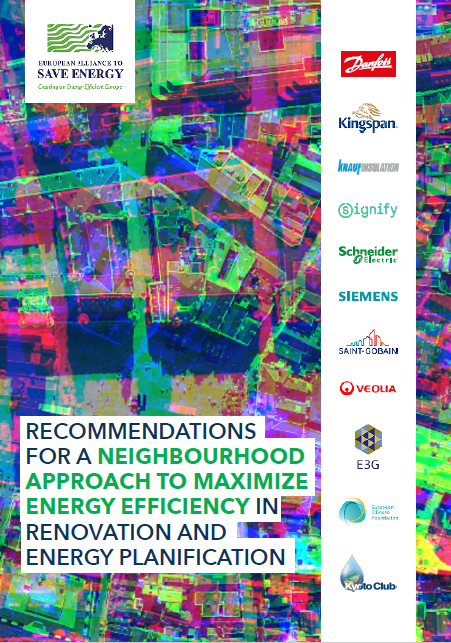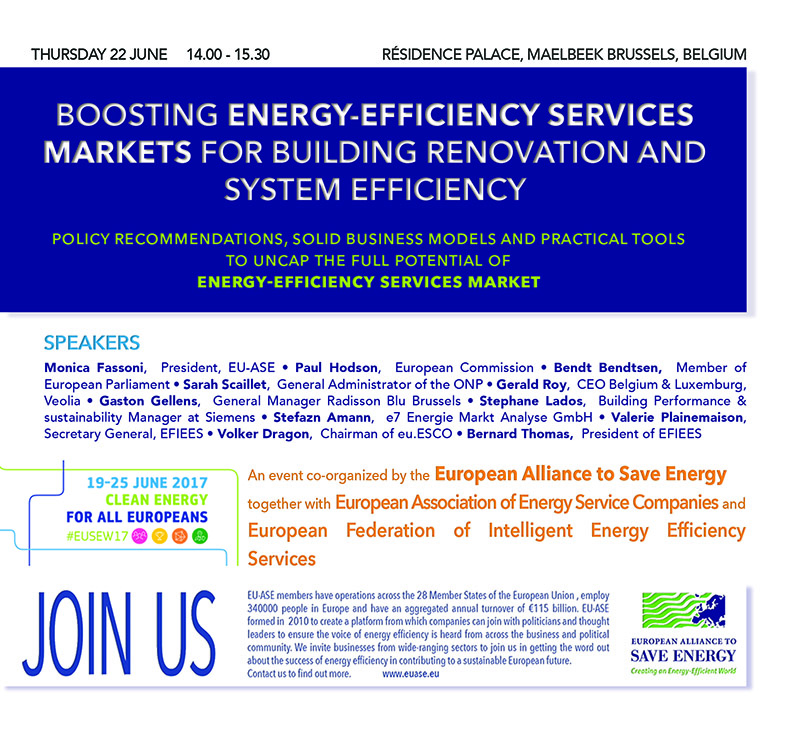Leading businesses urge Governments to put building renovation at the centre of recovery plans

Ahead of the important European Council meeting of next 17-18 July, EU-ASE addressed a letter to the 27 EU Heads of State and government to call for leadership and long-term political vision for managing the economic and social crisis caused by the COVID-19 pandemic.
Brussels, 14 July 2020
Dear Leaders of Europe,
The health and socio-economic crisis caused by Covid-19 calls for unprecedented decisions in the process of designing resilience and recovery plans. We have now an opportunity for Europe as a whole to make a great leap forward towards new and more sustainable economic models, instead of going back to the pre-crisis status quo. Now more than ever, Europe needs your bold political vision to implement immediate measures and to quickly fix the damages left behind by COVID-19, while investing in our long-term future. This opportunity should not be wasted.
As businesses and investors having energy efficiency and energy demand reduction at the heart of our activities, we expect Europe’s global climate leadership to be translated into measures which will lead to a green recovery and positive long term impact for citizens, business and the environment. As an example, the Renovation Wave is a unique opportunity to promote a European based industry, with technologies and expertise able to serve the renovation demand locally. Investing in the comprehensive renovation of the European building stock will help maintain the competitive advantage of the European construction value chain and create local jobs, while lifting millions of Europeans out of energy poverty. But despite its great potential, only a few Member States have committed to this objective by submitting their Long-Term Renovation Strategies due in March.
According to the European Commission’s recovery strategy released last month, the renovation of buildings across Europe is key and the upcoming Renovation Wave Initiative will be critical to stress the positive impact that sustainable and energy efficient buildings can have on health, well-being and quality of life; emission reduction and climate change; economic recovery and job creation. According to a recent study, for every €1 million invested in energy renovation of buildings, an average of 18 jobs are created in the EU. These are local, long-term jobs that will stimulate economic growth and will help drive us out of the economic crisis.
In order to fully realize Europe’s building renovation potential, it is paramount to increase the renovation rate of the building stock to a minimum of a 3% per year and make renovation programmes the cornerstone of the national recovery and resilience plans that you are due to present next October.
In view of the above, we look forward to working with you to decarbonize the EU building stock by 2050.
Yours sincerely,
Monica Frassoni
President of the European Alliance to Save Energy (EU-ASE)
Media contact:
Matteo Guidi
+32 493 37 21 42
matteo.guidi@euase.eu


